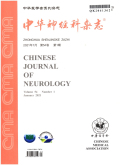关注认知储备与血管性认知障碍的关系
Pay attention to the relationship between cognitive reserve and vascular cognitive impairment
摘要血管性认知障碍(VCI)是老年人群认知障碍的主要病因之一,严重影响患者的生活质量及寿命。认知储备可以代偿老化以及病理损伤引起的认知障碍。认知储备的主要影响因素包括智商、教育程度、职业成就、娱乐活动、双语、颅脑损伤以及血管危险因素。认知储备的测量方法包括单一的替代变量和多个替代变量组合的问卷。认知储备指数问卷是较为常用的一种问卷。认知储备与卒中后的认知障碍密切相关,不仅与卒中后认知障碍的严重程度相关,而且影响认知障碍的恢复速度。认知储备还与脑小血管病相关的认知障碍相关。认知储备在临床应用及研究中仍存在很多问题,如生物学机制尚不明确、测量方法侧重社会经济学指标、量表中的指标权重不清等,因此需要更多关注认知储备的机制及认知储备与VCI关系的研究。
更多相关知识
abstractsVascular cognitive impairment (VCI), one of the most common causes of cognitive impairment, severely influences the lifetime and daily life abilities in the elder population. Cognitive reserve (CR) can compensate the damage caused by aging and brain pathology. The risk factors of CR include intelligence quality, education, occupation achievement, leisure activities, bilingualism, traumatic brain injury and vascular risk factors. Single proxy indicator and questionnaire composed of several different proxy indicators have been developed to measure CR. Cognitive Reserve Index Questionnaire is the most commonly used scale of CR. CR is not only associated with the severity of post-stroke cognitive impairment, but also the rapid cognitive recovery early after stroke. CR also plays a great role in the cognitive impairment related to small cerebral vessel diseases. Many problems on CR exist among the clinical application and clinical research, such as the underlying biological mechanisms, excessively emphasizing socioeconomic indicators in the CR questionnaire and unclear weighting score of single indicators in the CR questionnaire. More attention should be paid to mechanism research and relationship between CR and VCI.
More相关知识
- 浏览0
- 被引0
- 下载0


相似文献
- 中文期刊
- 外文期刊
- 学位论文
- 会议论文



 换一批
换一批 换一批
换一批



